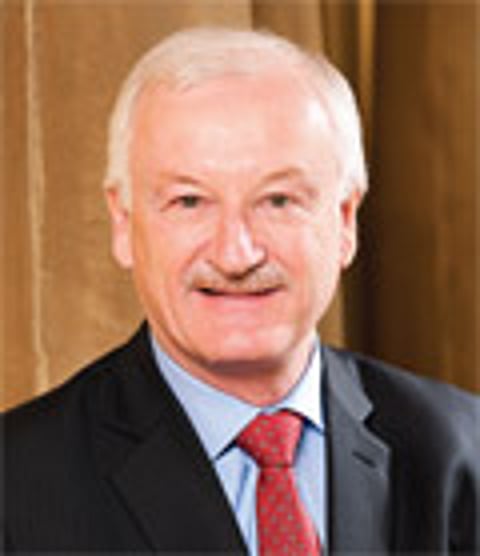Petmin chairman Cockerill puts on brave face after R200m write-down and a director’s big stock sales
Ian Cockerill is best remembered for successfully leading the defence of Gold Fields against the hostile takeover bid by Bernard Swanepoel's Harmony Gold. The two leading players in that drama are now both chairing highly entrepreneurial mining operations. Cockerill's Petmin, the bigger by three times, has focused its attention on coal and base metals. Even after a R200m write-down of its 25% owned Mpumalanga iron ore project Veremo, it still managed to declare a 3c a share dividend. Despite the headwinds that junior miners are experiencing, Cockerill remains upbeat as you'll read from the transcript below. Conditions will have to change quite significantly, though, before this one gets back to 330c level it traded at early last year. There's not a lot of confidence internally about that happening soon. Non executive director Alwyn Martin, the former chairman of Vodacom, sold R32m worth of stock in June at prices between 200c and 210c. Clearly signaling that in his opinion anyway, at the current 202c Petmin is no screaming buy. UPDATE: After this piece was published Cockerill called to say that Martin's sale wasn't what it seemed; that it was a re-organisation of his family holdings. That makes the issue a little confusing as there was no corresponding purchase notified on SENS at the time of the sale. The company has been asked to provide clarity. Once this is received the information will be added. – AH
ALEC HOGG: Mining Company Petmin has reported a 19% drop in full year earnings. I suppose it depends how you want to look at those earnings, though. Ian Cockerill, the Executive Chairman, is with us. If you take everything into account Ian, you went from 19.5c profit earnings per share last year to 19.5c loss earnings per share this year. It hasn't been the best 12 months.
IAN COCKERILL: I think Alec, it depends, as you say, upon the way you look at it. If you take out the impairment for Veremo, we made 15¼ cents. And on a like-for-like basis, last year we made 13 cents per share because obviously in the figures you've quoted you've included some quotes.
ALEC HOGG: But that R200m write-off – or impairment as you call it – on the Veremo project: You did announce it in a trading update, but at the time we didn't talk. You can perhaps explain to us what went wrong there.
IAN COCKERILL: Well, I don't think there's anything wrong. It's just the nature of the global commodity market at the moment. Every year we're obliged to review all of our projects. We look at the value, our future projections of the price-line for the commodity. We look at mining costs – all the associated inputs and we value that project and we felt that it was prudent this year to reduce the overall value of the project by R200M.
ALEC HOGG: Did you get caught up in the hype? That's what… Most people look at the mining sector and say 'there was far too much expansion. There was too much excitement. It was almost as though there was never an end to the China demand story, because R200M is a lot for a company that's only valued at R1.2bn.
IAN COCKERILL: Yes. Look, it's a lot of money. It's not a paper figure. It's a cash figure. I think that needs to be stated right up front. Were we caught up in the hype? No, because again every year you're obliged to value it as the market sees things at that time. So it was a high-water mark valuation and this year it's come down. Next year it may go up if the price for iron ore improves.
ALEC HOGG: That's the way that the commodity cycle goes, I guess.
IAN COCKERILL: It's a cyclical business, Alec.
ALEC HOGG: It looks better at Somkhele, but you've got a strike going on there at the moment.
IAN COCKERILL: Yes. Look, it's that time of year. Wage demands are in. There is a legal strike. We're sitting with fairly extensive stockpiles. We're supplying customers from those stockpiles – finished product stockpiles – and for a while we were continuing to produce on the mine and work the plants with volunteers. That is not the case as we stand at the moment, but we're hopeful that we'll get resolution fairly soon. I think we're very close to getting a resolution.
ALEC HOGG: Is it AMCU?
IAN COCKERILL: Half of our workforce is AMCU and half the workforce is NUM.
ALEC HOGG: And are both unions off at the moment?
IAN COCKERILL: Both unions are on strike.
ALEC HOGG: Alright. So there's no brighter side to the union fight among themselves but you have paid a dividend of 3 cents this year – down from 5 cents last year. Why, Ian, when you had all these write-offs?
IAN COCKERILL: Well, we have a very strict policy and our policy says that we will pay out 20% of headline earnings per share. Our headline earnings per share, as I said earlier, was actually up like-for-like, and so we felt it was still prudent to pay a dividend. It's in line with our policy, saying shareholders would like some money today as well as prospects of longer-term growth
ALEC HOGG: So next year – better.
IAN COCKERILL: I think the outlook, particularly for the anthracite market, doesn't look good. Anthracite, metallurgical coal, and even thermal coal is fairly soft. We're hopeful things might turn, but at this stage I wouldn't be banking the farm that it's going to get significantly better.
ALEC HOGG: Ian Cockerill, thank you for coming into the studio today. He is the Executive Chairman of Petmin.

